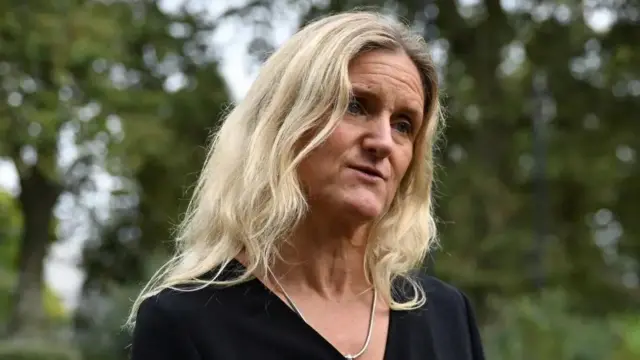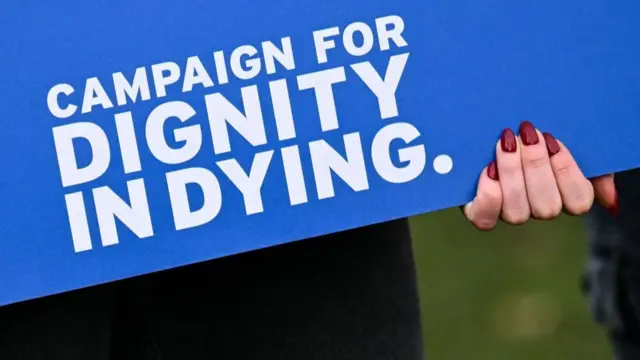Personal stories inform politics around assisted dyingpublished at 06:48 GMT 29 November 2024
 Harry Farley
Harry Farley
Political correspondent
I’ve been speaking to dozens of MPs over the last few weeks about their views on assisted dying. It is clear for many their positions are informed by personal experiences, as well as the arguments.
Catherine Fookes, the Labour MP for Monmouthshire since July, told me about her dad who died just over a year ago.
“Last year he became really ill. And he was given a terminal diagnosis. The last few days were incredibly difficult. He was in a lot of pain. It was really, really, really hard to see someone you really love going through that. He struggled to breathe.
“Seeing him like that made me realise that we need a change in the law. We need to be able to choose and that’s what I would like for other people.”
But similar experiences have led others to different conclusions.
Melanie Ward is another newly elected Labour MP. She also lost her dad to cancer. But she told me she’d be voting against assisted dying.
“This law would fundamentally change the relationship between a patient and their doctor.
“My dad died of terminal cancer a few years ago. I know that if, as would have been allowed under this law, his doctor had suggested to him that he should think about killing himself because he was terminally ill, that would have terrified him.”
We can expect to hear plenty more of these personal stories influencing political decisions in the debate today.



